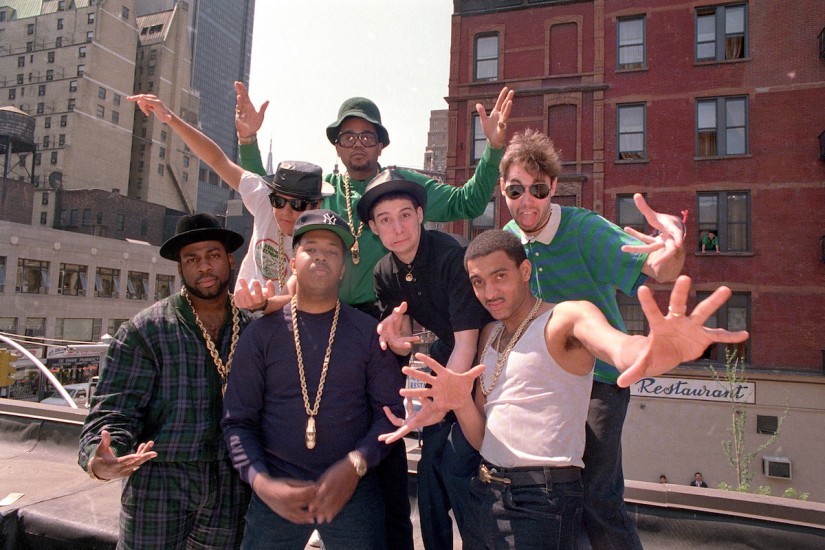Ralph Ellison once suggested that “living with music” provides us with “an orientation in time.” Music, in other words, helps us locate and anchor ourselves within a history that exceeds us. Living with music might well allow us to listen to history itself, to listen for what history sounds like. What history can we hear in hip-hop? Two recent, genre-warping books, Hanif Abdurraqib’s Go Ahead in the Rain: Notes to a Tribe Called Quest and Michael Diamond and Adam Horovitz’s Beastie Boys Book, are listening. Each, in its own way, is trying to understand what kind of history is in hip-hop, and to what history this music orients its listeners.
At the same time, each is also trying to determine its subjects’ own relation to that history. But translating cultural history into personal history—as well as converting music into language—is difficult. How are we to explain the ways we cleave to sounds made outside our immediate orbit? How exactly do we attach our myriad dramas onto the snap of a beat?
The answer to these questions, for hip-hop, is the sample. Built from the breaks of jazz and funk, soul and disco, hip-hop is forged by breaking open and repurposing—sampling—musical history. In the spirit of Ellison, hip-hop is a historical archive of reinvention: the assembly of samples in service of something else, of something new. As Abdurraqib puts it, a sample “can be extracted from the past and stretched over a sound reaching for the future,” allowing MCs to “rap about their own desires for [improving] a fractured world.” Samples spotlight the temporal character of the world; by pointing to the disjunction between past and present, they open a space for imagining the world otherwise. By breaking and remaking forms, hip-hop gives shape to desire, endeavoring to author a new world into being. For Abdurraqib, this new world is both index of and salve for the indignities of the present, a powerful counter-rhythm to the way things are.
Indeed, hip-hop emerges in both books as revelatory, revolutionary. “The shit was crazy,” Diamond writes, remembering early DJ Afrika Bambaataa: “Our world was forever changed.” And: “It never occurred to us that so much different music from so many different worlds could all live together, with the sum being (far) greater than the parts.” Here, hip-hop draws otherwise opposing elements together in a groove.
